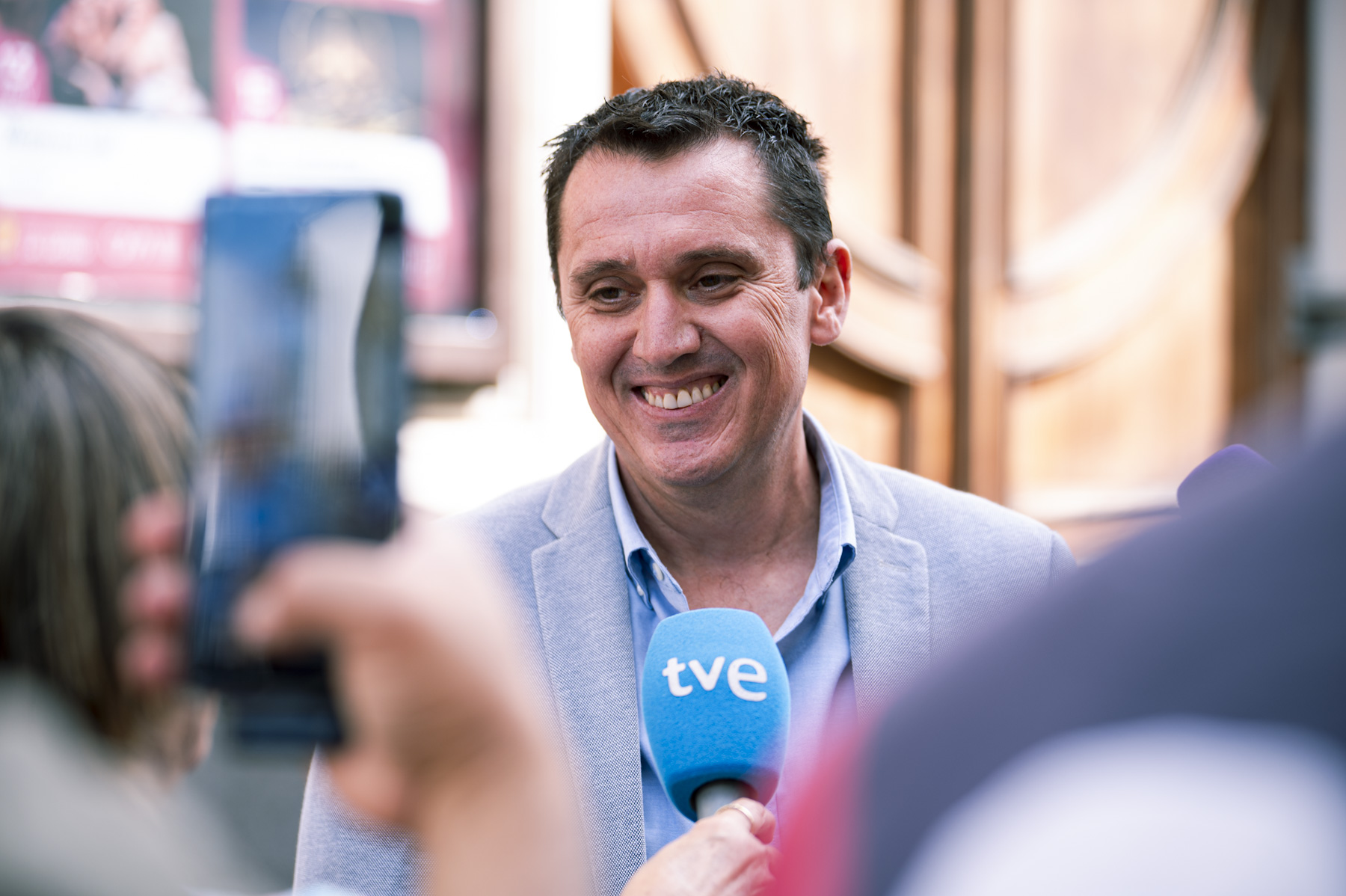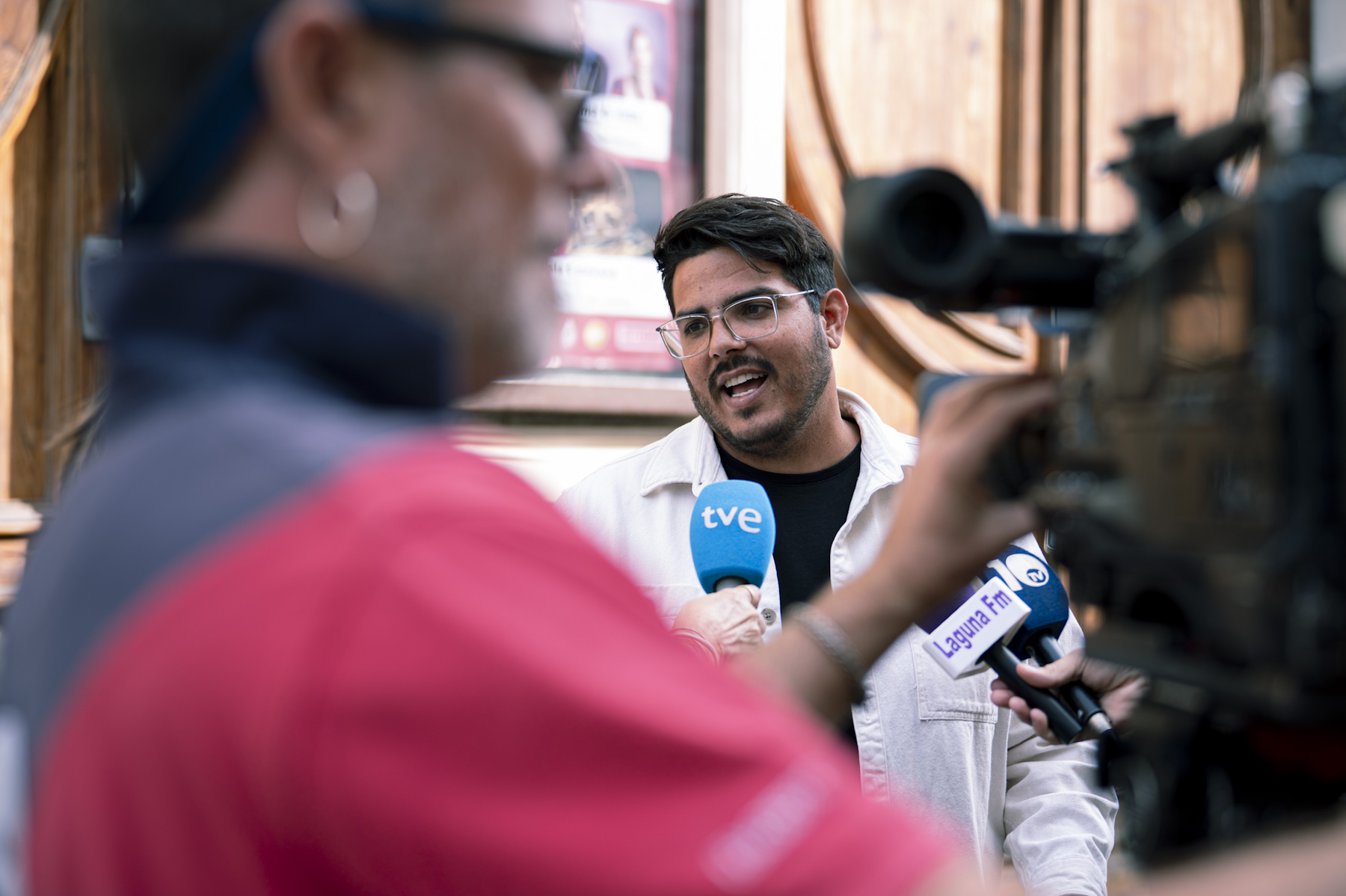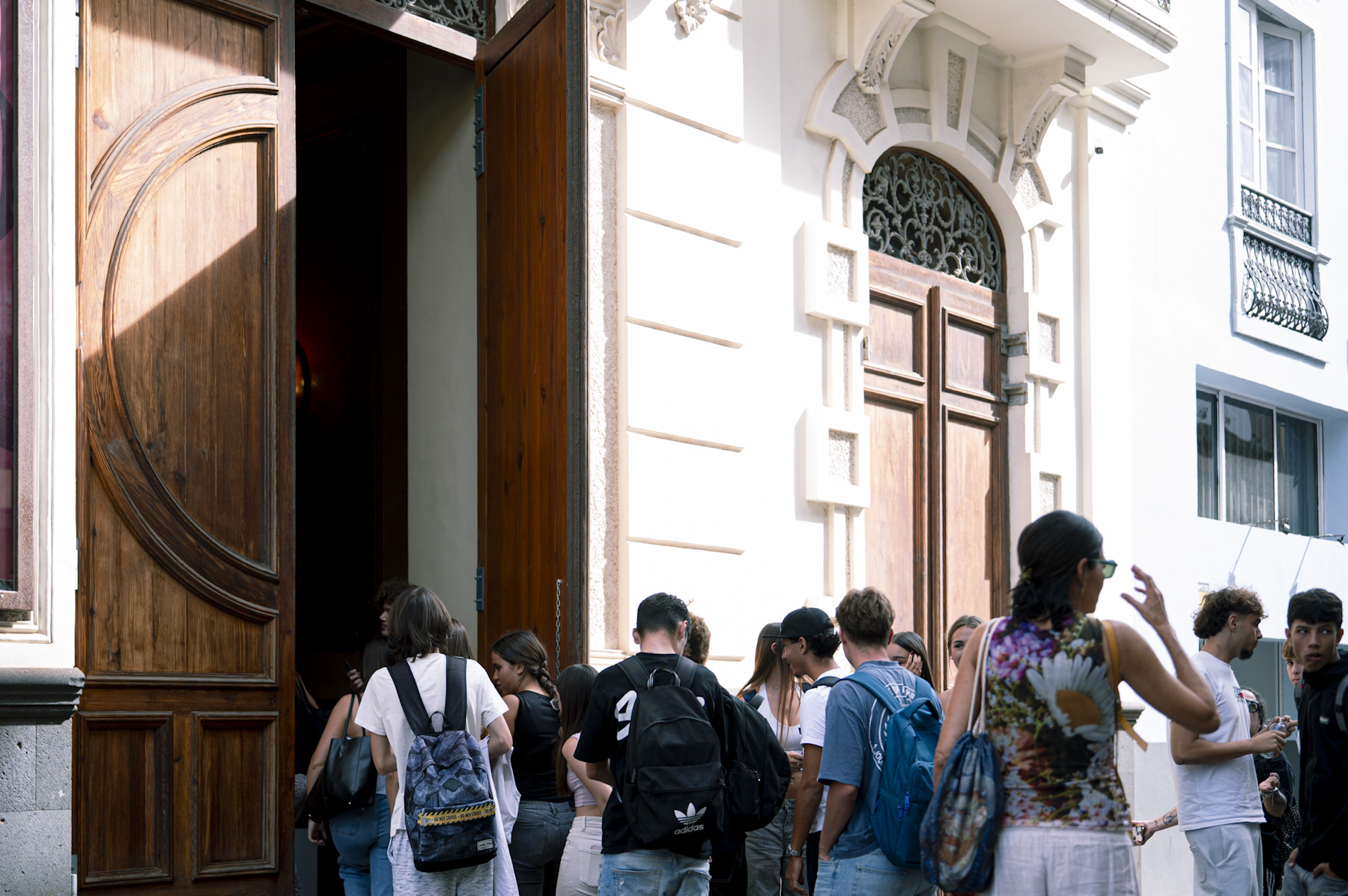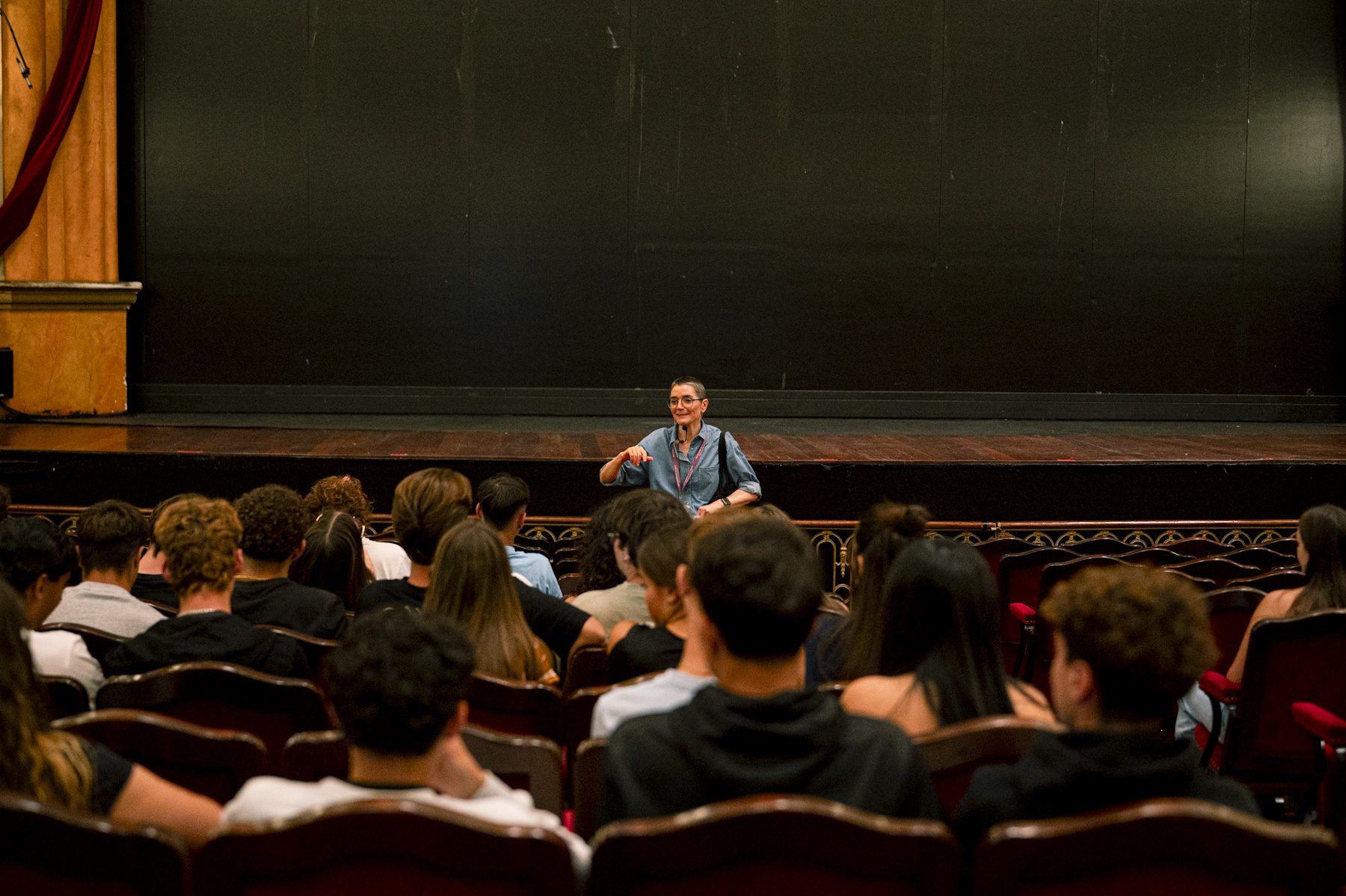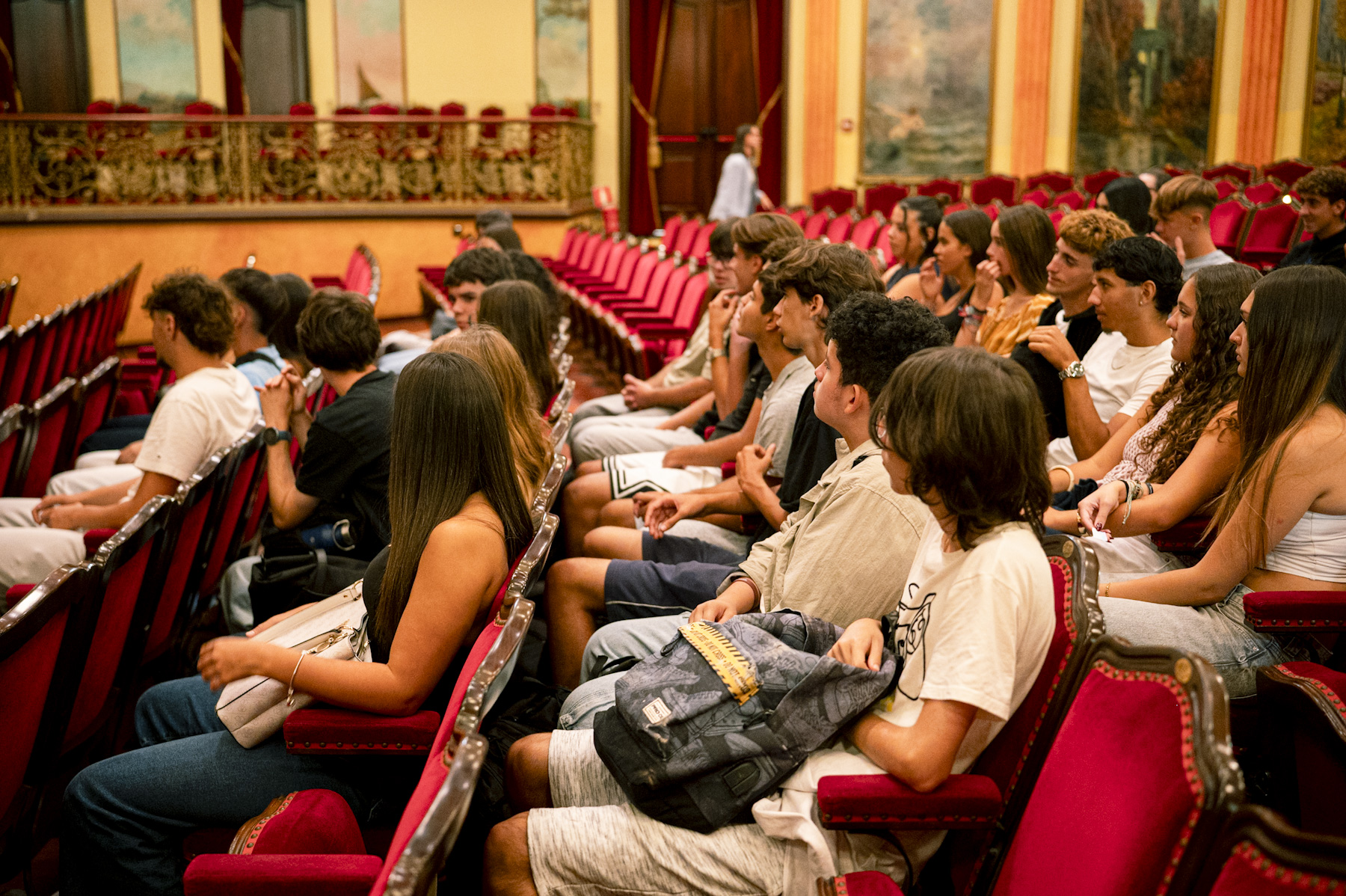The municipality from Tenerife commemorates its 25th anniversary as a World Heritage City with a month of tours that highlight and celebrate the women who shaped its history.
The initiative links the anniversary of the UNESCO declaration with the municipal commitment to combat gender violence and accompanies the municipal programme for 25th of November.
The World Heritage city of Las Palmas de Gran Canaria today welcomed the launch of the project “La Laguna con voz de mujer” (La Laguna with a woman’s voice), a cultural, educational and social initiative that will visit the main heritage sites in the historic centre throughout November, with the aim of highlighting the role of women in local history and reflecting on the different forms of violence that have conditioned their ability to express themselves over time.
The programme will run until 1 December, making November a month of active memory, historical reflection and institutional commitment to equality. In fact, the activity is directly linked to two significant anniversaries: the 25th anniversary of the declaration of La Laguna as a UNESCO World Heritage City and 25 November, International Day for the Elimination of Violence against Women.
The activity, promoted by the Department of Cultural Heritage of the City Council of La Laguna and designed in collaboration with Localiando professionals Elisa Falcón and Luzbel Armas, consists of 26 guided tours adapted to two types of audience: Monday to Friday in the morning for 3rd and 4th year ESO and sixth form students from public secondary schools in the municipality, and on Friday and Saturday afternoons for other groups, residents of La Laguna and visitors from different municipalities in Tenerife.
Since its announcement, the project has generated an enthusiastic response, with places on these free and accessible tours selling out quickly, forcing the creation of a waiting list. On 8 November, dozens of residents from the municipality of Adeje will also be welcomed to take part in a special tour to learn not only about the heritage value of La Laguna, but also about the essential role that women have played in its historical development.
The mayor of La Laguna, Luis Yeray Gutiérrez, said that “La Laguna con voz de mujer is much more than a cultural activity. It is an act of historical justice, a tribute to those who built this city anonymously and an invitation to look at our past with new eyes. We are proud that this project is linked to the 25th anniversary of our declaration as a World Heritage City and to 25 November. Because protecting our heritage also means protecting the voices that inhabited it, especially those that were silenced.”
The Councillor for Cultural Heritage, Adolfo Cordobés, and the Councillor for Equality, Women and LGBTI, Dailos González, welcomed the students participating in this first tour today, highlighting the symbolic and social value of the project.
Adolfo Cordobés emphasised the cross-cutting approach of a project that “allows for a sensitive and rigorous approach to issues such as education, public participation, political repression and women’s communication in adverse contexts. It is a way of giving back a voice to those who were denied it, and of doing so in the very spaces they inhabited, worked in or transformed”.
UNESCO reminds us that heritage is not only monumental, but also intangible, social and human. ‘La Laguna con voz de mujer’ embodies this principle, with a proposal that combines historical rigour, social sensitivity, educational vocation and high symbolic value; it not only covers historical spaces, but also interprets them from the experiences of those who inhabited them, especially women who were silenced or made invisible,” added the councillor.
Rethinking our relationship with heritage
In this regard, Cordobés recalled that “we wanted the 25th anniversary of our declaration as a World Heritage City to be more than just an institutional celebration, but rather an opportunity to rethink how we relate to our heritage. The Council has designed a programme that encompasses different points of view and age groups so that heritage becomes a living, accessible and emotionally meaningful experience, bringing together school trips, intergenerational activities, artistic and educational initiatives that connect with citizens in their everyday lives.”
The initiative is also part of a series of actions promoted by La Laguna City Council to mark 25 November. The Councillor for Equality, Women and LGBTI, Dailos González, explained that “we want the whole month of November to serve to commemorate the many women who have suffered violence, to educate about equality and to build a fairer city. La Laguna is demonstrating that local management can be profoundly transformative when it is carried out with sensitivity, rigour and participation”.
The councillor noted that “this project is in line with the objectives of our Equality Plan, which seeks to incorporate the gender perspective into all municipal policies,” and recalled that “since the Municipal Women’s Council, an advisory and consultative body, we have promoted actions that raise the profile of women who have suffered reprisals, women scientists and women creators. This project adds to that collective effort and does so from the public space, from the street, from our heritage.”
An initiative to connect generations
Elisa Falcón, art historian and official Canary Islands Tourism guide, explained the details of the heritage routes, which include stops “at iconic sites such as the Museum of Sacred Art of the Convent of Santa Clara, the Museum of History and Anthropology of Tenerife (MHAT), the Documentation Centre of the Canary Islands and America (CEDOCAM), the Leal Theatre, the exterior of the Los Sabandeños House Museum, the Institute of Canarian Studies (IECan) and the Cayetano Gómez Felipe House Museum”.
“Each visit will focus on important female figures (religious leaders, migrants, slaves, intellectuals, artists) and will include readings of historical documents, testimonies and texts that allow for emotional and intellectual immersion. The routes are designed to move, to teach and to connect generations, because we want each participant to take away not only knowledge, but also a transformative experience,” Falcón said.



